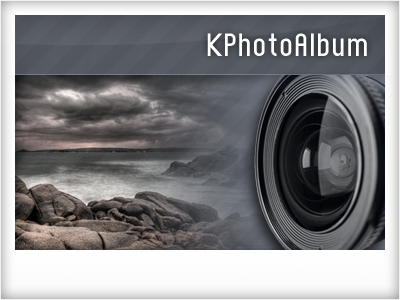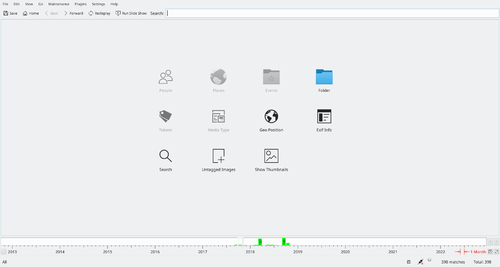KPhotoAlbum: Difference between revisions
m Fix minor typo |
corrected link |
||
| Line 31: | Line 31: | ||
<!--T:3--> | <!--T:3--> | ||
For an introduction, take the [https://www.kphotoalbum.org/documentation/3minutetour/3 minute KPhotoAlbum tour] or see the [https://www.kphotoalbum.org/documentation/videos/ Videos] at [https://www.kphotoalbum.org/ KPhotoAlbum's Homepage]. To learn more and view some screenshots read the [[Special:myLanguage/KPhotoAlbum FAQ|FAQ]]. | For an introduction, take the [https://www.kphotoalbum.org/documentation/3minutetour/ 3 minute KPhotoAlbum tour] or see the [https://www.kphotoalbum.org/documentation/videos/ Videos] at [https://www.kphotoalbum.org/ KPhotoAlbum's Homepage]. To learn more and view some screenshots read the [[Special:myLanguage/KPhotoAlbum FAQ|FAQ]]. | ||
<!--T:4--> | <!--T:4--> | ||
Revision as of 12:19, 16 July 2019
 |
KPhotoAlbum is a tool which you can use to easily sort your images. It provides many capabilities to make sorting and viewing images easy. |
History
The development of KPhotoAlbum started in 2003 with the name KimDaBa (for K image Data Base) by Jesper Pedersen[1]. KiPi support was added in 2004[2]. In 2006, Tuomas Suutari a sponsored [google summer of code student], implemented a new sql based database.
In July 2007, KPhotoAlbum started to being ported to KDE 4[3]. The porting finished in May 2009[4]
In 2014, an android version was released[5]. A video of the android version is available in youtube.
In 2016, KPhotoAlbum was ported to qt5/kf5[6].
Stable releases are always announced on our news page.

Getting started
For an introduction, take the 3 minute KPhotoAlbum tour or see the Videos at KPhotoAlbum's Homepage. To learn more and view some screenshots read the FAQ.
KPhotoAlbum supports all the normal image formats including raw formats produced by most digital cameras and scanners (using dcraw to do the decoding). It is also possible to use the thumbnails embedded in raw images (that are usually of decent size and quality) for fast viewing so there is no need to decode the whole raw image.
Using KPhotoAlbum
There is a 3-minute Tour and a set of How-To videos on the project site. A KPhotoAlbum handbook is also available as a PDF and on-line version.
Getting KPhotoAlbum
Source packages, binaries for various distros, and snapshots are available from the project Download page.
KPhotoAlbum on Live systems
KPhotoAlbum is available in Neon:
- User Edition has the latest release
- Developer Edition (stable branch) has the 5.x branch.
Most of the time, this should be the same as unstable, but when new features are developed they only arrive in stable after the roughest edges have been smoothed out. - Developer Edition (unstable branch) has the master branch of kphotoalbum.
Extending KPhotoAlbum
- Image::Kimdaba is a perl module available on CPAN which parses the index.xml database.
- Write your own extensions to KPhotoAlbum
- Read Image::Kimdaba to download it and to see available scripts
- Another way to extend KPhotoAlbum is to write KIPI plugins (that are used also by other KDE photo applications). These plugins provide functions like exporting images to websites like Flickr, Picasa, Facebook, ... correcting exif date stamps or doing some other image manipulations. (KPhotoAlbum by itself does not touch the original files at all but preserves them intact).
- Other useful scripts are available from Wes Hardaker's site
- Patches and features awaiting approval or implementation - Please use bugs.kde.org for that.
Help develop KPhotoAlbum
If you are interested in helping the KPhotoAlbum development or related projects, please look at this project page. Or, if you have an idea for a feature, please see the Feature Requests section, below.
Known Bugs and feature requests
See the list of Known Bugs and workarounds in KPhotoAlbum.
Please use bugs.kde.org marking the report as a "Wish".
New Ideas for Future Versions
If you have a new idea for KPhotoAlbum and think that bugs.kde.org is not the right place for it, use one of the communication channels listed on the pages.
More Information
- KDE official documentation
- KPhotoAlbum homepage
- KPhotoAlbum news
- Wikipedia article
- KPhotoAlbum phabricator project
- KPhotoAlbum git repository

